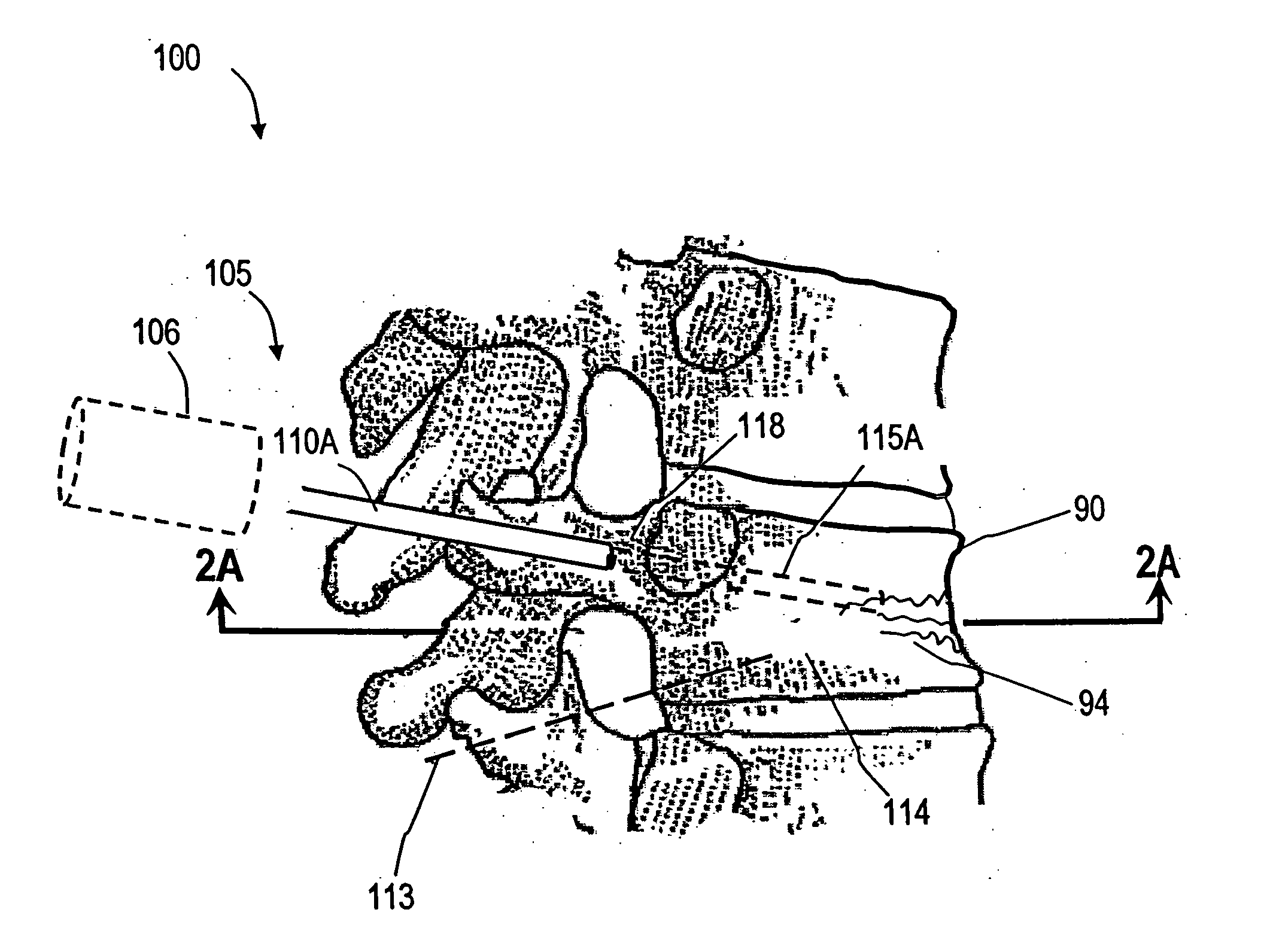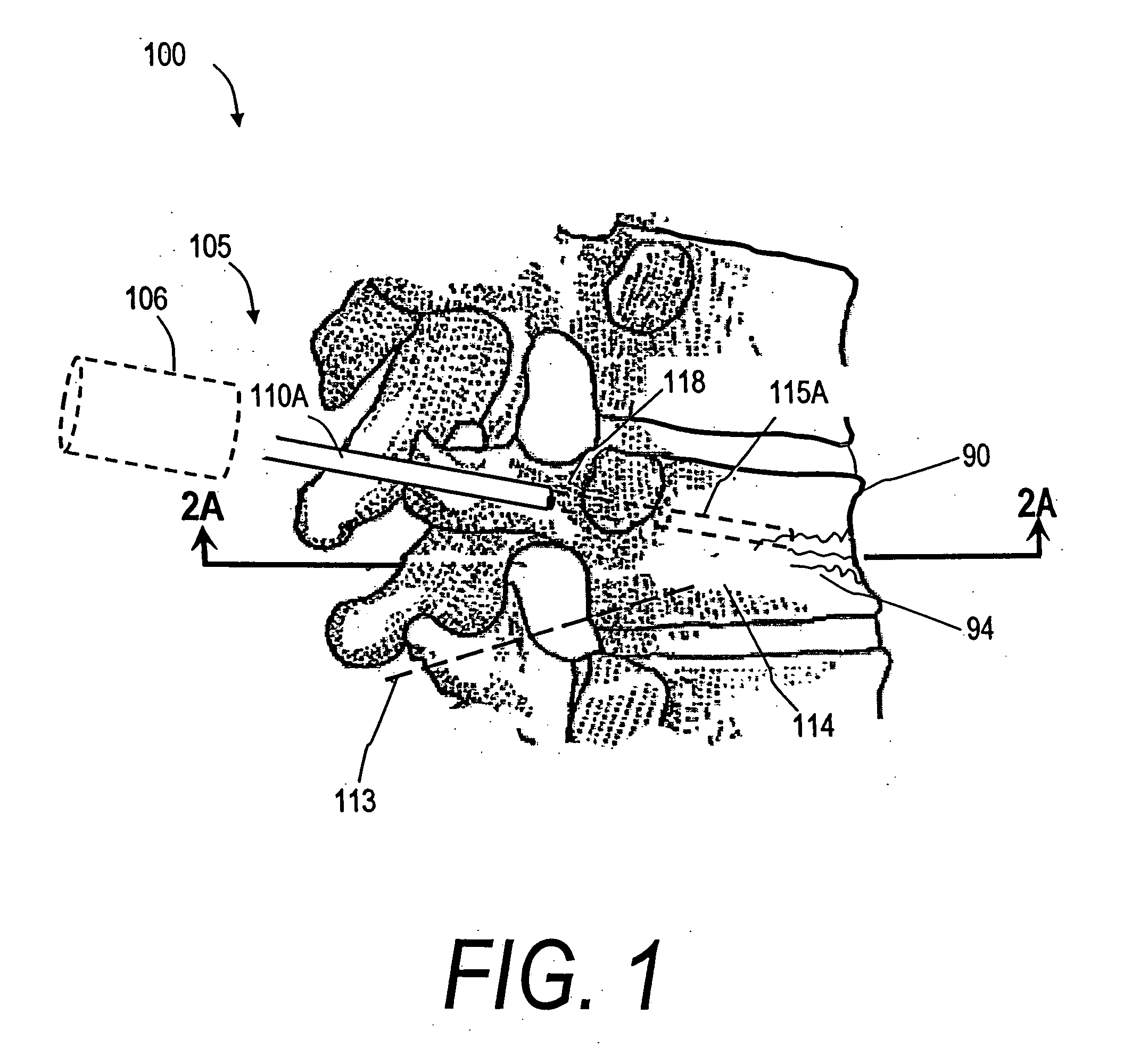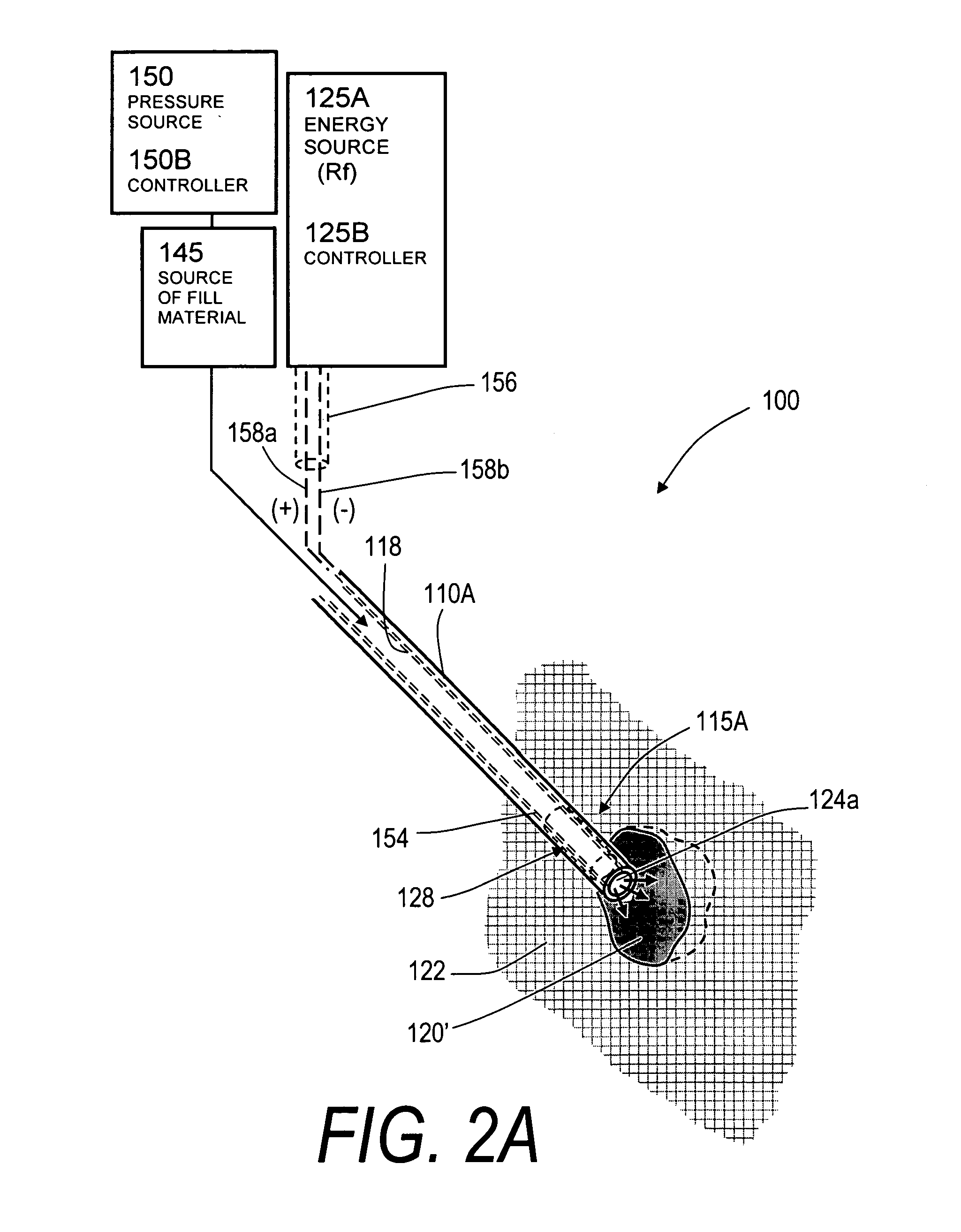Bone treatment systems and methods
a bone treatment and bone technology, applied in the field of bone treatment systems and methods, can solve the problems of fractures in the spine and hips, affecting mobility and quality of life, and the medical advances aimed at slowing or arresting bone loss from aging have not provided solutions to this problem, so as to prevent the migration of monomers
- Summary
- Abstract
- Description
- Claims
- Application Information
AI Technical Summary
Benefits of technology
Problems solved by technology
Method used
Image
Examples
Embodiment Construction
[0051]FIG. 1 illustrates one embodiment of the invention in treating a spine segment in which a vertebral body 90 has a wedge compression fracture indicated at 94. In one embodiment, the systems and methods of the invention are directed to safely introducing a bone fill material into cancellous bone of the vertebra without extravasion of fill material in unwanted directions (i) to prevent micromotion in the fracture for eliminating pain, and (ii) to support the vertebra and increase vertebral body height. Further, the invention includes systems and methods for sealing cancellous bone (e.g., blood vessels, fatty tissues etc.) in order to prevent monomers, fat, fill material and other emboli from entering the venous system during treatment.
[0052]FIG. 1 illustrates a fractured vertebra and bone infill system 100 which includes probe 105 having a handle end 106 extending to an elongated introducer 110A and working end 115A, shown in FIG. 2A. The introducer is shown introduced through p...
PUM
 Login to View More
Login to View More Abstract
Description
Claims
Application Information
 Login to View More
Login to View More - R&D
- Intellectual Property
- Life Sciences
- Materials
- Tech Scout
- Unparalleled Data Quality
- Higher Quality Content
- 60% Fewer Hallucinations
Browse by: Latest US Patents, China's latest patents, Technical Efficacy Thesaurus, Application Domain, Technology Topic, Popular Technical Reports.
© 2025 PatSnap. All rights reserved.Legal|Privacy policy|Modern Slavery Act Transparency Statement|Sitemap|About US| Contact US: help@patsnap.com



